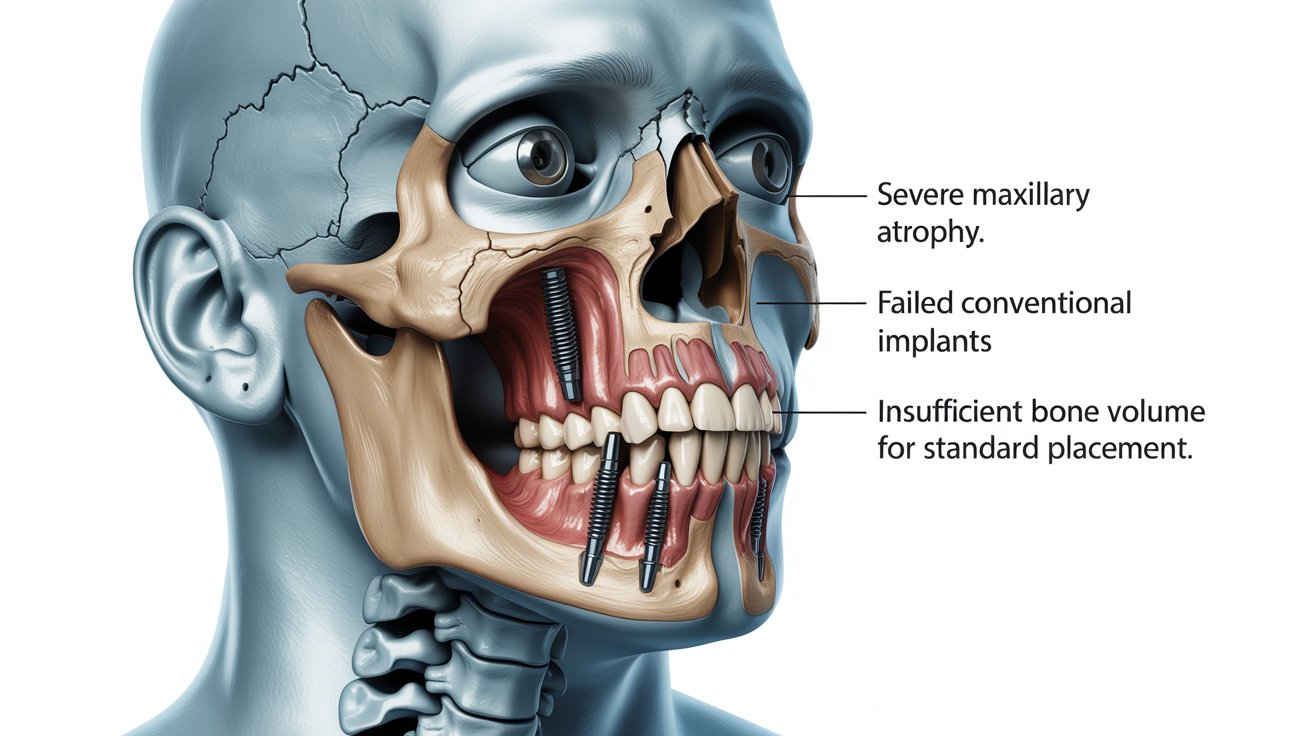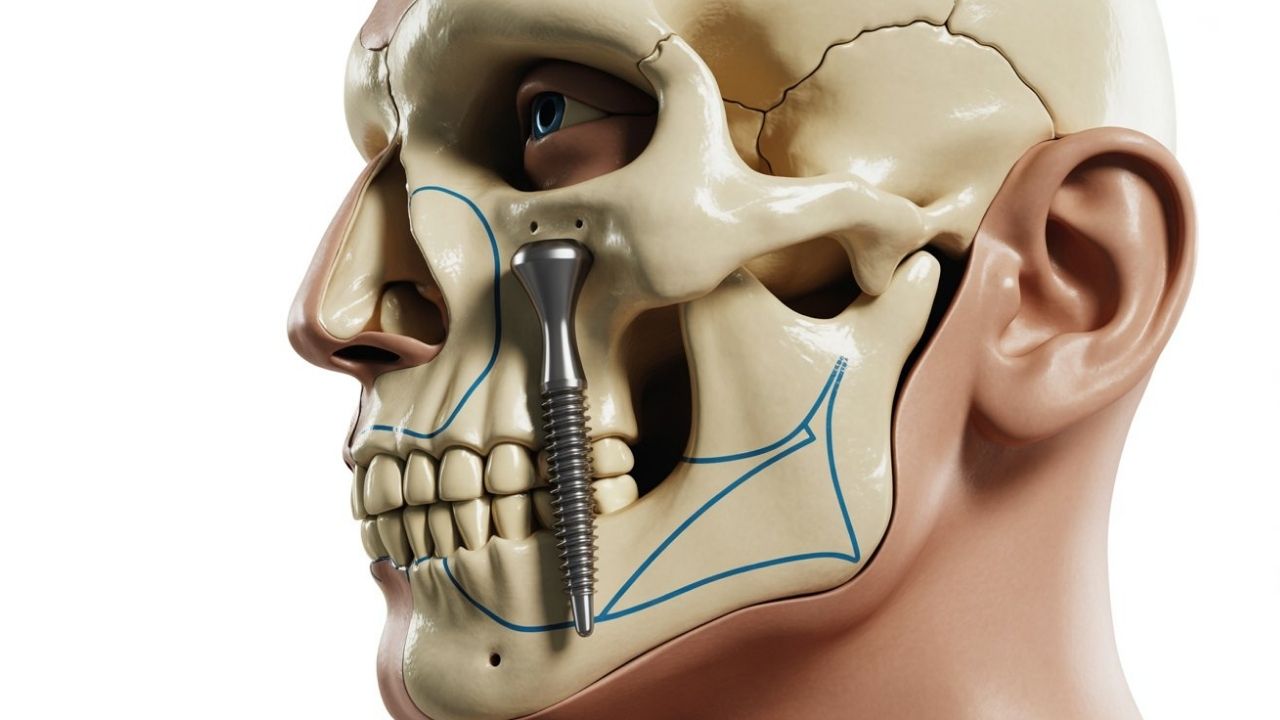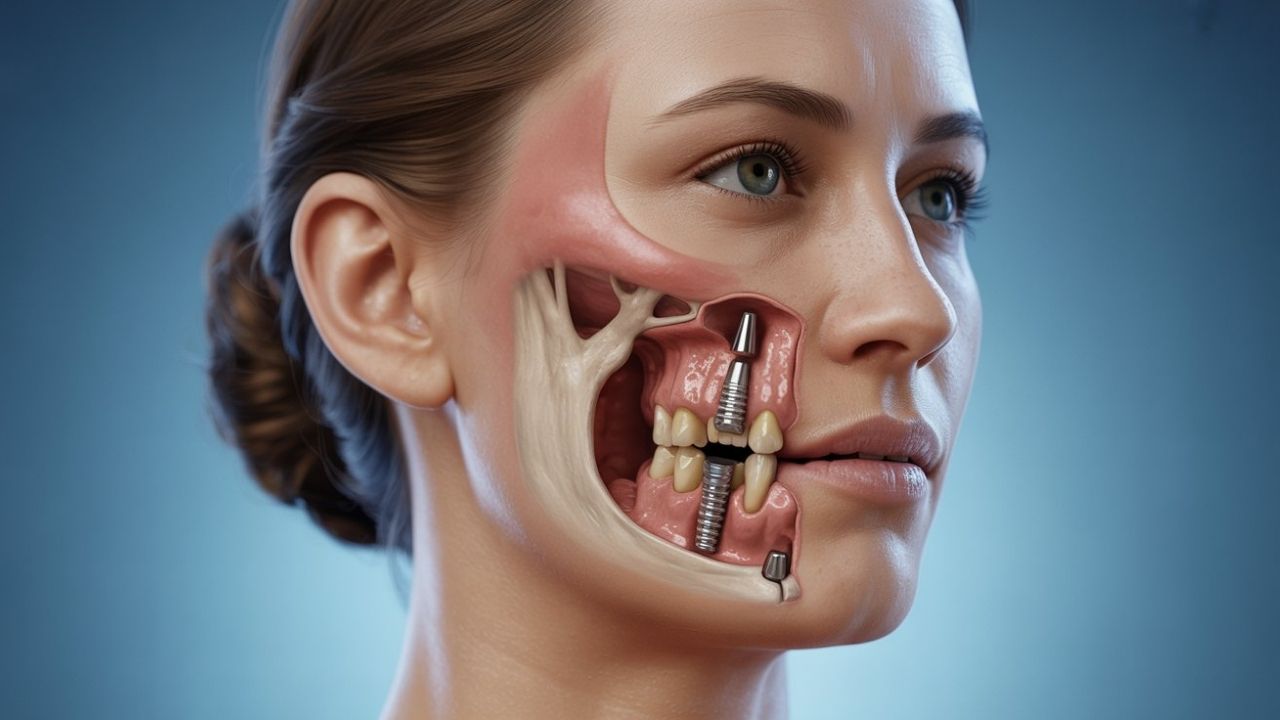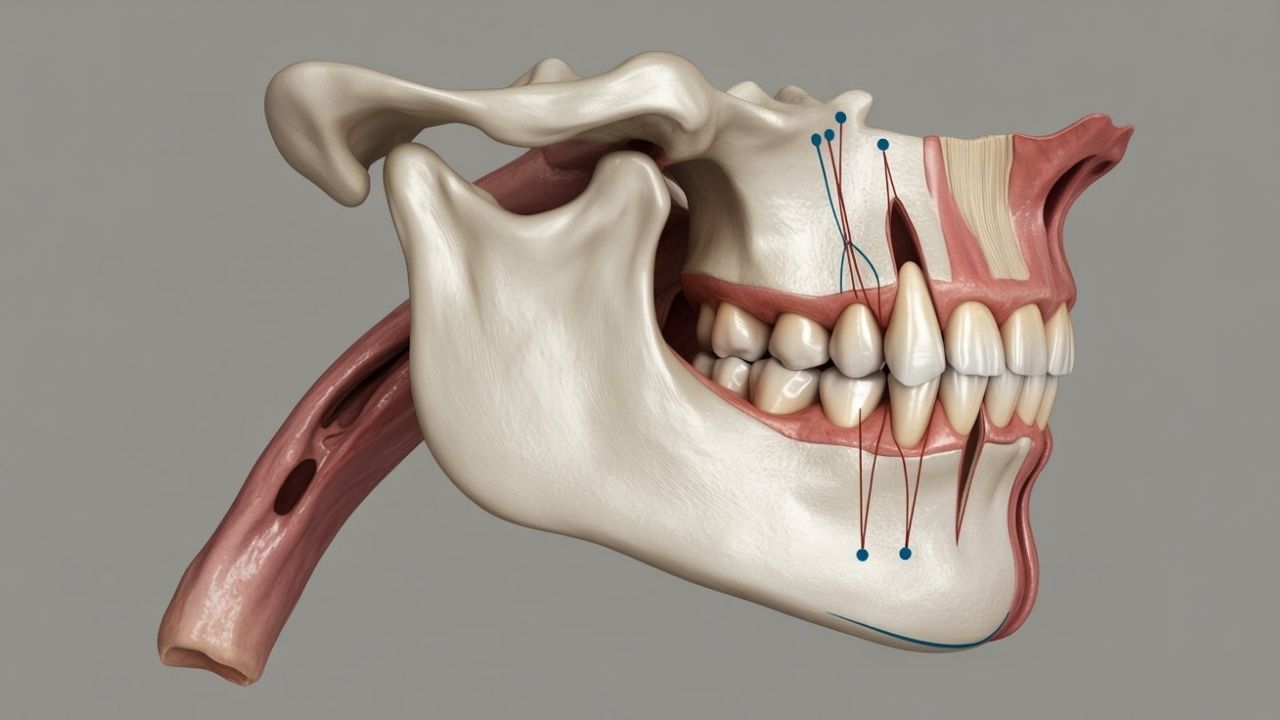Zygomatic implant indications are expanding rapidly as dental technology advances and patient expectations rise. These specialized implants offer a life-changing solution for individuals with severe maxillary bone loss who are not eligible for traditional dental implants. In this comprehensive guide, we explain who qualifies for zygomatic implants, when they are indicated, and how maxillofacial surgeons assess patient suitability.
What Are Zygomatic Implants? Zygomatic Implants Indications
Zygomatic implants are extra-long dental implants anchored in the zygomatic bone (cheekbone) instead of the maxilla. This unique anchorage provides stability for fixed prosthetic restorations even when the upper jawbone is severely resorbed or compromised. The technique was originally developed by Prof. Branemark and has evolved into a predictable solution with a success rate exceeding 95% in qualified patients.
When Are Zygomatic Implants Indicated?
The main zygomatic implant indications include patients with extensive maxillary bone loss, failed bone grafts, or previous unsuccessful implant attempts. Below are the key scenarios where zygomatic implants are considered the treatment of choice.
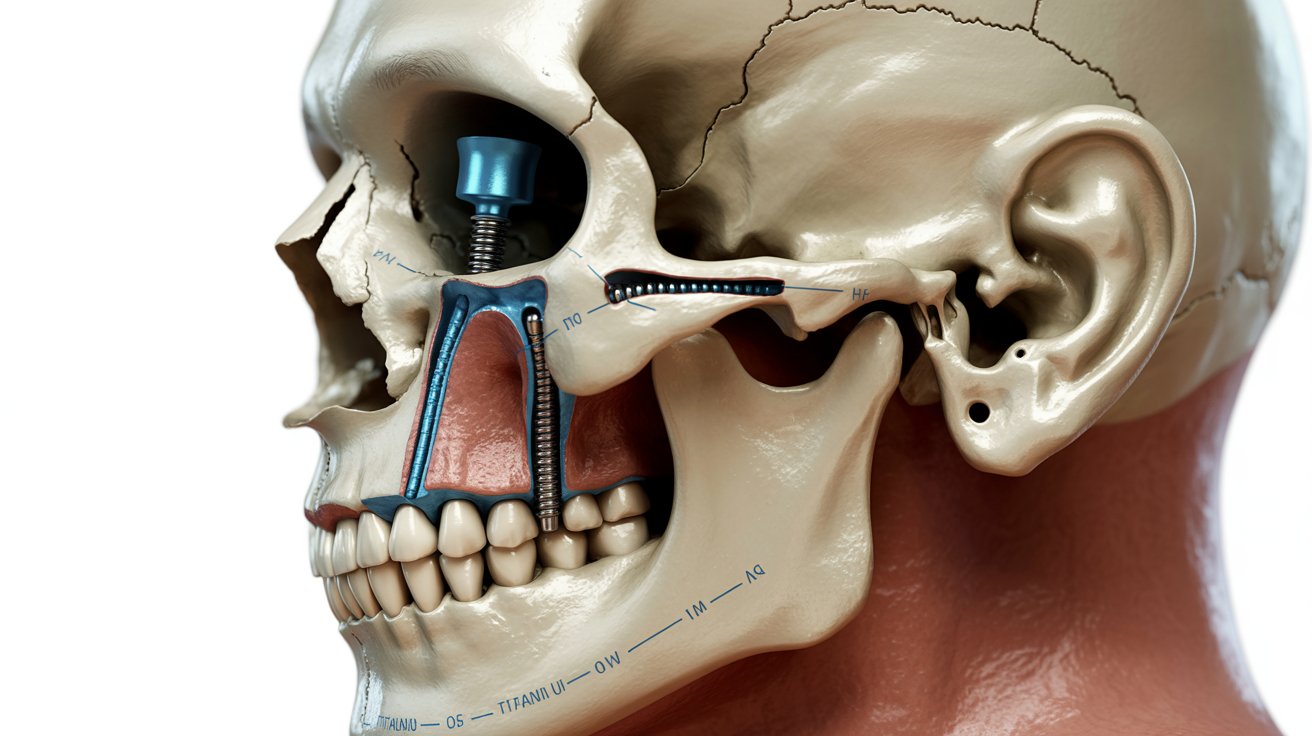
1. Severe Maxillary Bone Resorption in Zygomatic implant indications
Patients suffering from advanced atrophy of the upper jaw often lack sufficient bone height or width to support conventional implants. In such cases, bone grafting or sinus lift procedures are traditionally used, but they extend the treatment timeline and increase patient discomfort. Zygomatic implants eliminate the need for grafts by utilizing the dense zygomatic bone, allowing for immediate loading and faster rehabilitation.
2. Failed Bone Grafting or Implant Treatments
Individuals who have previously undergone sinus augmentation or bone grafting without success are ideal candidates for zygomatic implants. These implants bypass the grafted area entirely, offering a secure anchorage point in the cheekbone. This approach significantly improves implant survival rates and provides a permanent alternative for patients who experienced graft failure or repeated implant loss in the upper arch.

3. Post-Traumatic and Post-Oncologic Maxillofacial Reconstruction
Zygomatic implants play a critical role in reconstructive maxillofacial surgery following trauma, congenital defects, or tumor resection. In these cases, the zygoma often remains intact while the maxillary bone is compromised or removed. Anchoring the prosthesis to the zygomatic bone restores facial symmetry, oral function, and aesthetics without the need for extensive grafting or bone harvesting from other body regions.
4. Patients Seeking Immediate Function and Full Arch Rehabilitation
Another important indication for zygomatic implants is the need for immediate function. Patients who desire a fixed full-arch prosthesis in a single surgical stage benefit from this technique. Zygomatic implants can often be placed alongside anterior conventional implants to achieve “quad zygoma” or “hybrid” configurations, allowing same-day prosthetic loading and rapid return to daily life.

Contraindications for Zygomatic Implants and Zygomatic Implant Indications
While zygomatic implants provide remarkable results for properly selected candidates, not every patient is suitable for the procedure. Below are common contraindications that must be carefully evaluated during preoperative planning:
| Contraindication | Description |
|---|---|
| Severe sinus pathology | Active sinus infection or chronic sinusitis may compromise healing and osseointegration. |
| Uncontrolled systemic conditions | Patients with poorly managed diabetes, osteoporosis, or bleeding disorders require extra caution before surgery. |
| Heavy smoking and poor oral hygiene | These habits increase the risk of implant failure, infection, and delayed healing. |
| Psychological or compliance issues | Patients unable to follow postoperative care or hygiene instructions may not be suitable candidates. |
| Insufficient zygomatic bone volume | Although rare, inadequate bone density in the zygoma can prevent secure implant placement. |

Preoperative Assessment and Patient Selection
Thorough diagnostic evaluation is the cornerstone of successful zygomatic implant treatment. Maxillofacial surgeons rely on detailed clinical and radiographic assessments to determine feasibility and minimize risks.
1. 3D Imaging and Anatomical Analysis
High-resolution CBCT scans are used to evaluate zygomatic bone morphology, sinus anatomy, and spatial relationships. Software-guided surgical planning ensures precise implant trajectory while avoiding vital structures such as the infraorbital nerve and sinus membrane.
2. Occlusal and Prosthetic Planning
A prosthetically driven approach is essential. The position and angulation of zygomatic implants are determined according to the planned prosthesis to achieve optimal occlusal balance, speech, and aesthetics. Collaboration between prosthodontists and surgeons ensures long-term functional success.
3. Medical and Psychological Evaluation
Patients must undergo medical screening to identify any systemic risks. Moreover, psychological readiness plays a significant role — understanding the procedure, post-surgical limitations, and maintenance is key to achieving satisfactory outcomes.
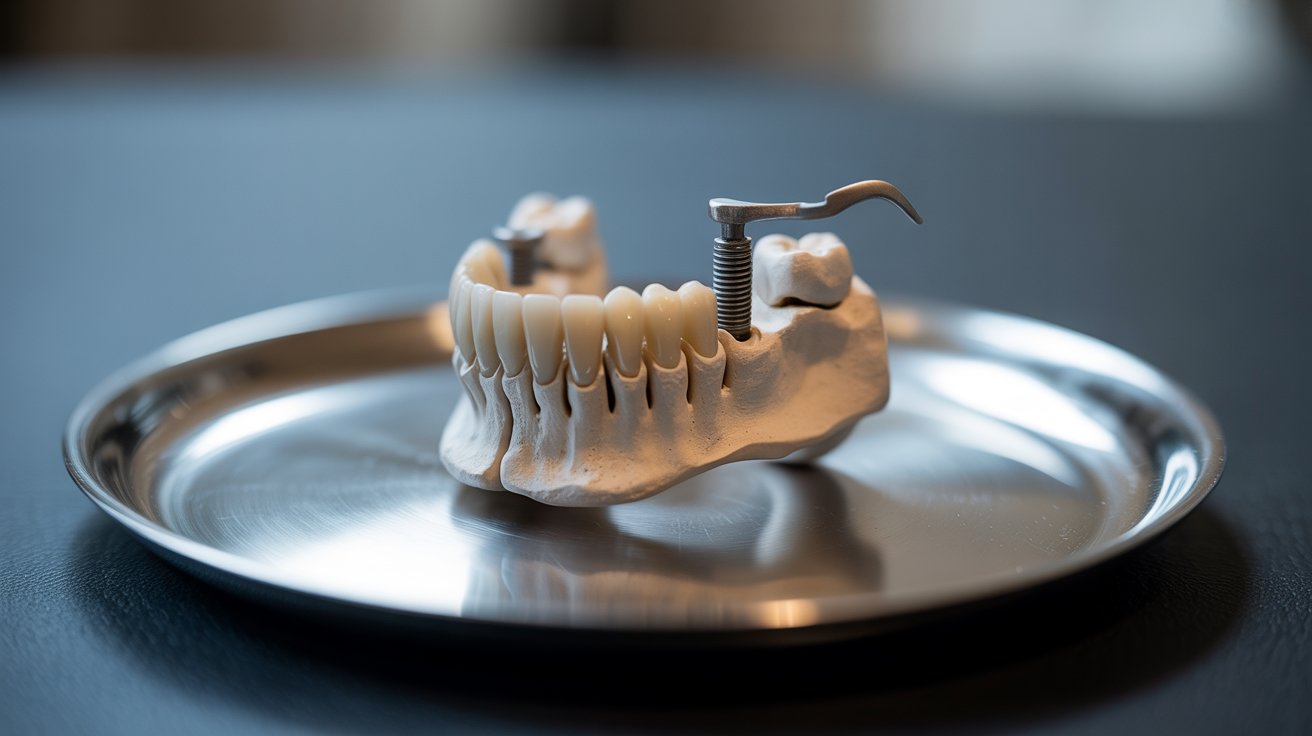
Why Patient Selection Matters
Appropriate case selection determines the long-term success of zygomatic implant indications. Poorly indicated cases can lead to complications such as sinusitis, implant loosening, or prosthetic misalignment. Conversely, carefully chosen candidates experience remarkable improvements in chewing ability, speech clarity, facial aesthetics, and overall quality of life.
What Are Zygomatic Implant Indications?
Zygomatic implants represent a revolutionary option for patients who once faced no viable dental restoration alternatives. Understanding the indications, contraindications, and patient selection criteria is crucial for achieving predictable results. With modern imaging, digital planning, and minimally invasive techniques, the procedure continues to set new standards in oral rehabilitation.
Take Your Place in Max Fax Zygoma Center
If you are considering zygomatic implant treatment, consult an experienced maxillofacial surgeon who specializes in advanced implantology. Clinics such as MaxFax Zygoma Center in Istanbul provide comprehensive diagnostics, personalized surgical planning, and long-term support for successful treatment outcomes.
